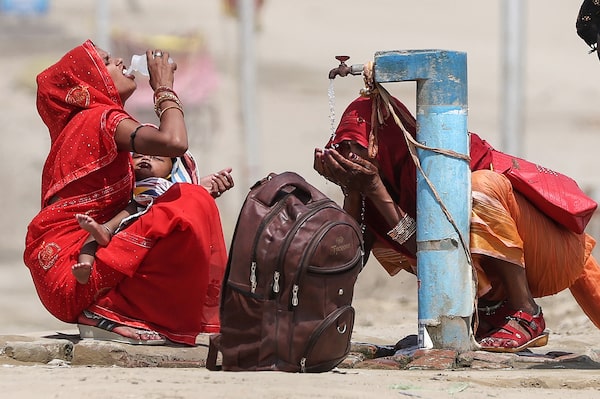
Four billion people experienced at least 30 additional days of extreme temperatures last year as a result of climate change, with nations in the tropics being the most severely affected, according to a new study.
Indonesia and Singapore have recorded an additional 99 days of extreme heat since May 2024 compared to a scenario that eliminated the impacts of global warming, as found by researchers from World Weather Attribution, London-based, US nonprofit Climate Central and the Red Cross Climate Center. Barbados, Haiti and other Caribbean and Pacific island states and territories each had more than 120 additional hot days.
The scientists defined extreme heat days as cases where daily temperatures were above 90% of the historical average for a given location, with the aim of gaining a better understanding of conditions experienced locally rather than making comparisons with global averages.
Last year was the hottest ever recorded, and the period covered in the report included several severe heat waves, including in the southwestern US last June, in southern Europe the following month and in central Asia in March.
Periods of extreme heat disproportionately affect vulnerable populations, including older adults, low-income communities, and pregnant people, according to the study. There are also frequently negative effects on agricultural productivity, water availability, and energy infrastructure.
Of the 247 countries and territories analyzed in the study, those with the highest number of additional days of extreme heat were overwhelmingly located in regions closer to the equator.
“Temperatures are less variable in the tropics than in the mid-latitudes, meaning that the climate change trend is emerging most clearly in tropical regions,” said Clair Barnes, a research associate at Imperial College London and a member of the World Weather Attribution group. That means those regions are more likely to experience extreme heat, she said.
Small island states are among the most exposed to and least prepared for climate risks, and they experienced the largest increase in extreme heat days during the period under study. This is because “the oceans surrounding them tend to retain heat for a long time, keeping temperatures higher in what would previously have been colder months,” Barnes said. (Text and Photo: Cubadebate)